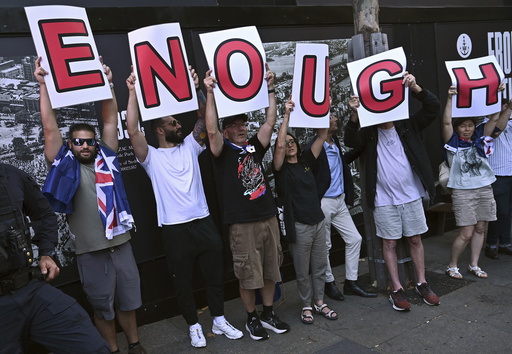WELLINGTON, New Zealand — Australia has faced a troubling surge in antisemitic incidents, having recorded a series of attacks that resulted in a dozen arrests for acts of vandalism and arson targeting homes, synagogues, schools, and businesses since October. Over the past year, nearly 200 individuals have been charged with crimes aimed at the Jewish community.
These attacks, primarily occurring in Jewish neighborhoods, have elicited significant public outrage and sparked a complex discussion regarding accountability. Amidst this unsettling climate, a rare display of political consensus emerged when Australian lawmakers moved forward with the nearly unanimous approval of new hate crime legislation.
Prime Minister Anthony Albanese emphasized the government’s commitment to holding individuals accountable for antisemitic behavior, stating, “We want people who are engaged in antisemitic activities to be caught, to be charged and to be put in the clink.” Opposition leader Peter Dutton echoed this sentiment, referring to the situation as a “time of national crisis.”
The reported incidents of hate crimes against both the Jewish and Muslim communities have escalated markedly since the Hamas attack on Israel on October 7, 2023, which has led to an intensification of violence in Gaza. Reports from various organizations indicate that while interpretations of antisemitism and Islamophobia may vary, the overall trend reflects a concerning rise in hate-driven incidents.
Major cities, particularly Sydney and Melbourne, which are home to a substantial portion of Australia’s Jewish population, have witnessed the most severe incidents. Notable events since November have included the discovery of a trailer loaded with explosives in Sydney, attacks on synagogues in Melbourne, the arson of a Jewish childcare facility, and vandalism marking Jewish schools and businesses with hate symbols and slogans.
In response to these alarming trends, counter-terrorism officials have detained twelve people linked to these incidents. Police report approximately 200 additional charges related to antisemitism in New South Wales since the onset of these attacks.
Investigations are ongoing regarding whether some of the perpetrators may have been funded by foreign entities to execute these criminal acts. Taskforce leaders noted that the arrested individuals may not hold antisemitic beliefs themselves, suggesting the possibility of external orchestration of these attacks.
Experts remarked that while the connection between ideological and criminal groups is not unprecedented, it is unusual for such occurrences to be linked to the recent series of hate crimes. Matteo Vergani, a hate and extremism researcher, noted that this is usually associated with larger-scale terrorist activities.
In discussing the potential causes for the recent surge in antisemitism, lawmakers attributed the escalation to heightened tensions following the Hamas attacks. Some influential figures, including Peter Wertheim from the Executive Council of Australian Jewry, have indicated that pro-Palestinian protests, particularly among younger progressives, may be inciting these incidents.
Conversely, other community leaders, including Sarah Schwartz of the Jewish Council of Australia, cautioned against drawing direct links between the pro-Palestinian movement and antisemitic violence, warning that such rhetoric could fuel further division and discrimination against various communities.
In a response to this rising wave of hate crimes, Albanese’s government has initiated legislative reforms aimed at strengthening hate crime laws, targeting various characteristics such as race and religion. Amendments include mandated prison sentences for hate-related criminal activities, which were previously opposed by the Prime Minister. This legislation received overwhelming support in the House of Representatives and is anticipated to pass in the Senate as well.
Other measures enacted include sanctions against a white supremacist financing network, criminalizing Nazi salutes, banning doxing practices that have threatened Jewish individuals, and the appointment of national representatives to tackle issues of antisemitism and Islamophobia. Individual states like New South Wales have also introduced their own legislative efforts.
The situation regarding antisemitic acts across Australia mirrors trends seen in other countries, notably the U.S. and parts of Europe. However, analysts note Australia’s unique context, including the relatively small size of its Jewish community, which has historically lived in harmony. Further contributing to the distinctive nature of these events is the perception of possible foreign influence behind the surge of hate crimes.
Political discussions and debates surrounding the topic have intensified, especially since the current national election is expected by May 17. Antisemitic incidents have garnered significant media attention, and Albanese has faced criticism for allegedly failing to take adequate action, while Dutton is being criticized for politicizing the issue.
As Australian lawmakers continue to scrutinize the recent spike in antisemitism, the Jewish community finds itself in a state of distress, reporting feelings of unprecedented vulnerability and fear of more severe violence. Community leaders observe that the current climate has not only impacted Jewish individuals but has also contributed to broader societal tensions involving various groups within Australia.
Copyright @2024-2025 | USLive | Terms of Service | Privacy Policy | CA Notice of Collection | [privacy-do-not-sell-link]



